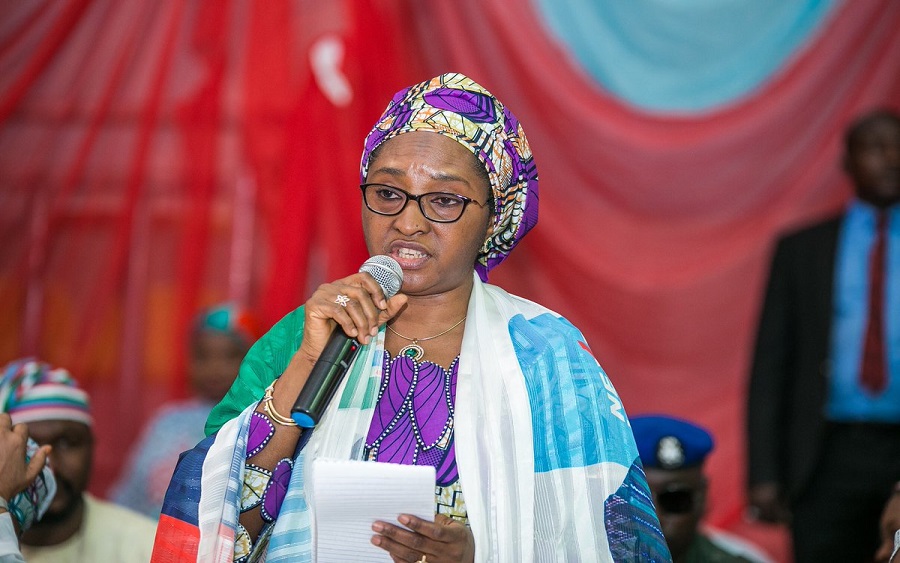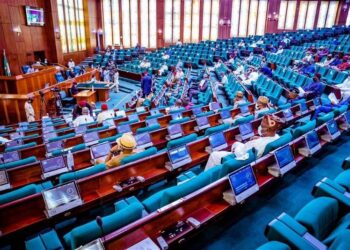The Federal Executive Council (FEC) has approved the 2022 – 2024 Medium Term Expenditure Framework and the Fiscal Strategy Paper (MTEF/FSP).
This was revealed by the Minister of Finance, Dr Zainab Ahmed, on Wednesday after the FEC meeting which was presided over by President Muhammadu Buhari, in Abuja. The Minister stated that the budget deficit will rise to N5.62 trillion, and would be funded by new foreign and domestic borrowings, according to the News Agency of Nigeria.
The Minister stated that the Framework Strategy paper is a roadmap for the FG’s socio-economic and developmental objectives and priorities, including policies to be implemented for the reporting period of 2022 to 2024.
The Ministry of Finance presented the report to the FEC projecting revenue of N6.54 trillion and N2.62 trillion to accrue to the Federation Account and Value Added Tax (VAT) respectively, while 2023’s revenue is forecasted at N9.15 trillion.
What the Minister said
“The goal for us is to improve the nation’s macro-economic situation or reposition the economy. The MTF/ FSP consists of medium-term macro-economic projections, fiscal targets and estimates of revenue and expenditure including government’s financial obligations.
“We have also presented to the Federal Government the projected revenues for 2022 to 2024, specifically for 2022.
“The revenue that we expect is N6.54 trillion and N2.62 trillion to accrue to the Federation account on VAT respectively. And then there will be a net oil and gas revenue available for the Federation account for distribution will be N6.15 trillion in 2022.
“This revenue is projected to increase in 2023 to 9.15 trillion. The total expenditure that we are expecting we have projected and approved by Council is an aggregate expenditure of N13.98 trillion,” she said.
She added that part of the expenditures includes N1.1 trillion of government-owned enterprises expenditure as well as grants and donor-funded projects in the sum of N62.24 billion.
“This means that this budget is just three per cent higher than the 2021 budget in terms of the size of expenditure,” she stated.
Ahmed also stated that Nigeria’s budget deficit that is projected for 2022 is N5.62 trillion, up from 5.60 trillion in 2021, as the amount represents 3.05% of the estimated GDP, which is slightly above the 3% threshold that is specified in the Fiscal Responsibility Act (FRA).
“The deficit is going to be financed by new foreign borrowing and domestic borrowing. Both domestic and foreign in the sum of N4.89 trillion on privatisation proceeds of N90.73 billion and drawdowns from existing project tied loans of N635 billion,” she added.
On inflation
The minister said she provided to the council, a macroeconomic background, which affirmed that the Nigerian economy had recovered from a negative growth of minus 1.8 per cent in 2020 to 2.5 per cent in 2021.
“Also, the inflation has moderated from a 19-month high in two months high. It’s now moderated for two months now, and that is coming down to 17.93 per cent,” she said.
“And our foreign reserve stands at N34.2 billion at the end of May, which is N640 million decline from the previous month.
“The key macro assumptions that were presented and council approved is that there’ll be a crude oil benchmark price of 57 dollars per barrel of crude oil for 2022, a crude oil production of 1.8 8 million barrels per day, and our exchange rate of 410 to one US dollar, an inflation rate of 10 per cent in 2022, and a nominal GDP of N149.369 trillion,” she added.
She added that Nigeria’s non-oil GDP is expected “to grow at N169.69 trillion compared to all GDP of N14.8 trillion included in the nominal GDP.”
In case you missed it
Nairametrics reported last week that the Finance Minister forecasted that the Nigerian economy will grow by as much as 4.2% in 2022 at the Public Consultation on the Draft 2022 to 2024 Medium Term Fiscal Framework and Fiscal Strategy Paper (MTFF/FSP).
The Minister added that Nigeria’s 2021 growth was adjusted downwards from 3% to 2.5%, while forecasting 2022 to be a better economic year.













